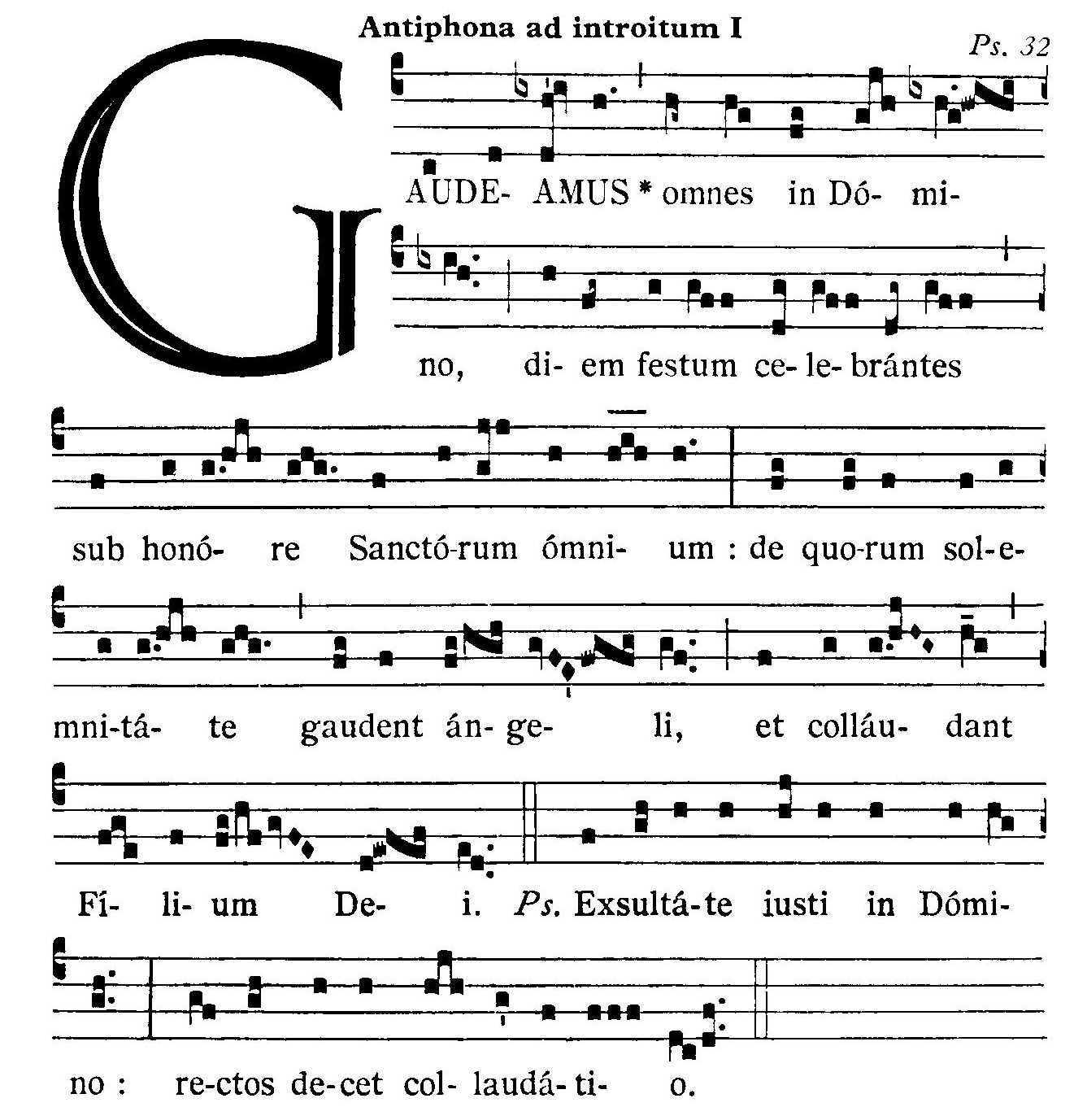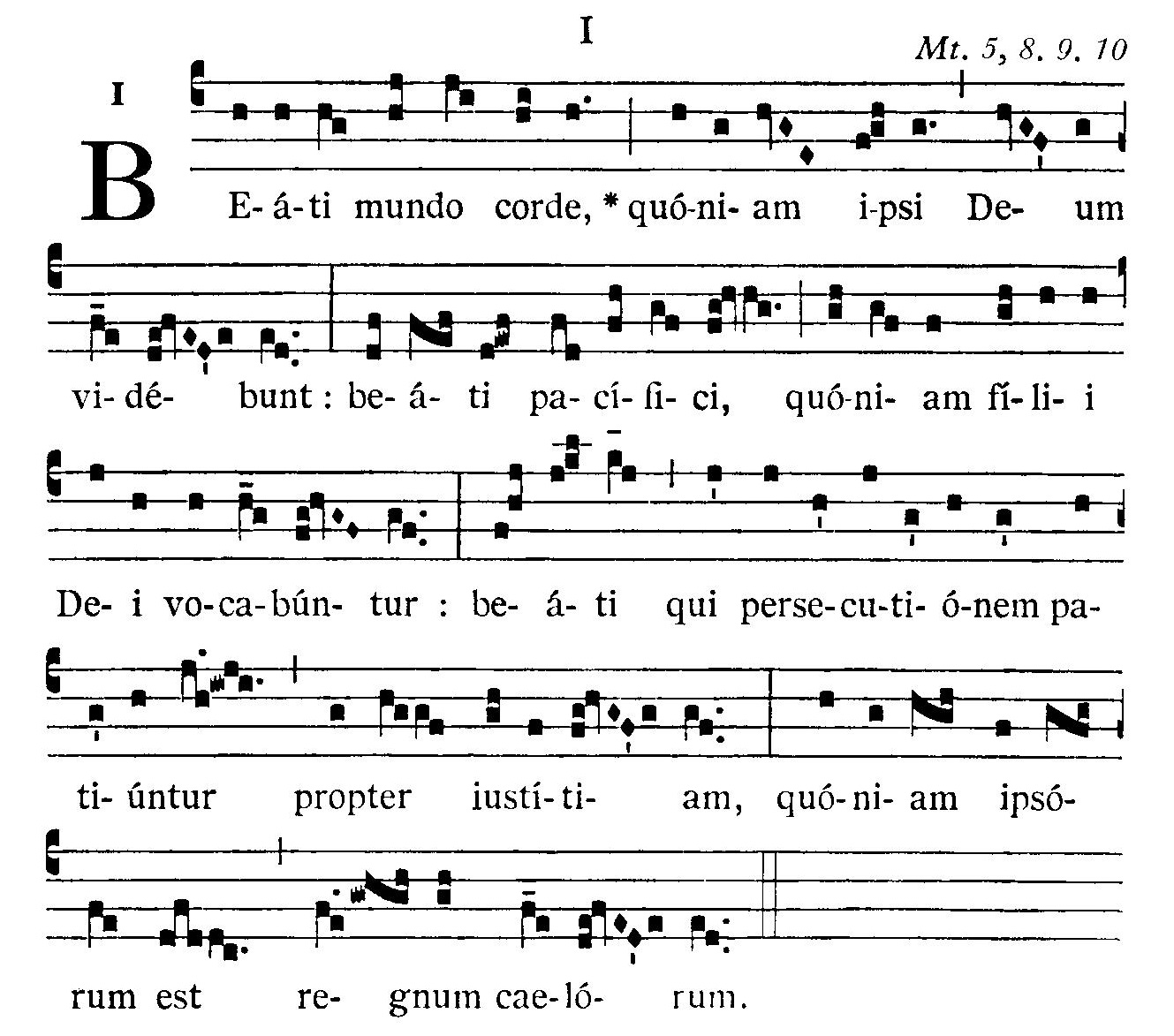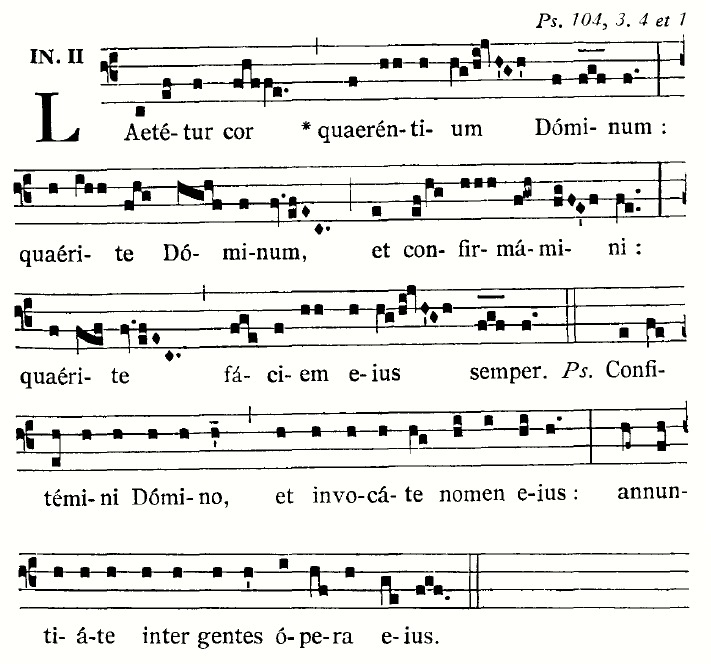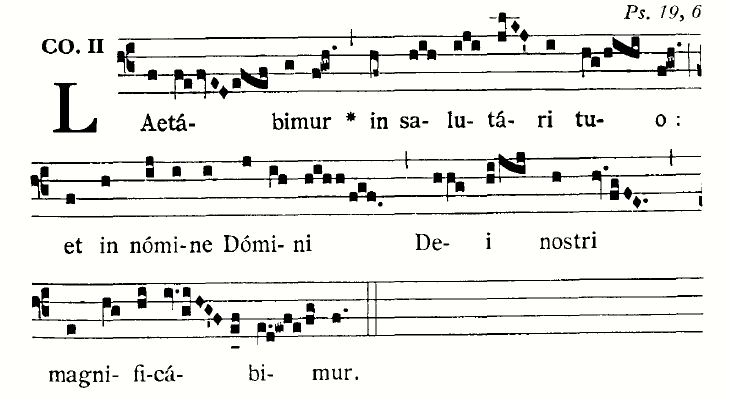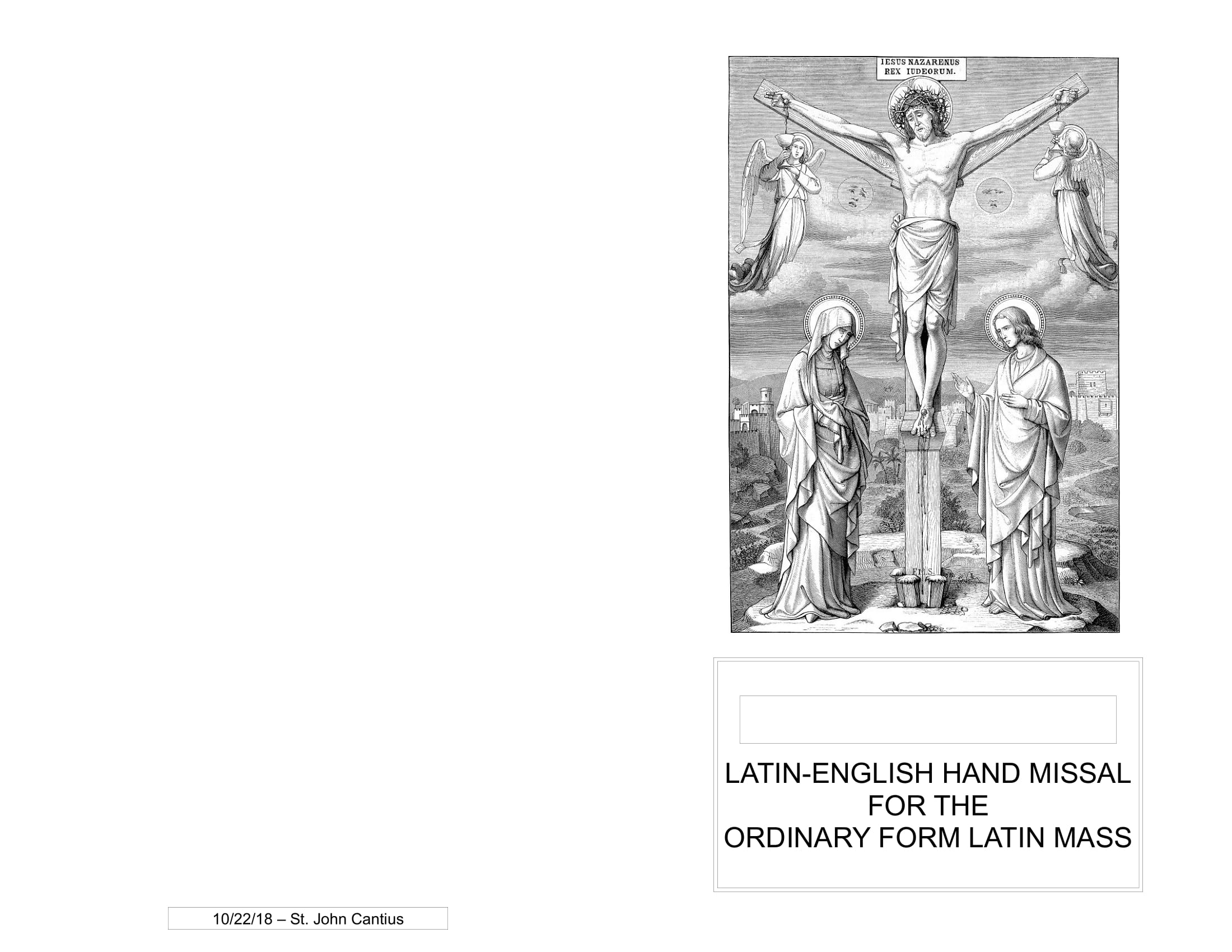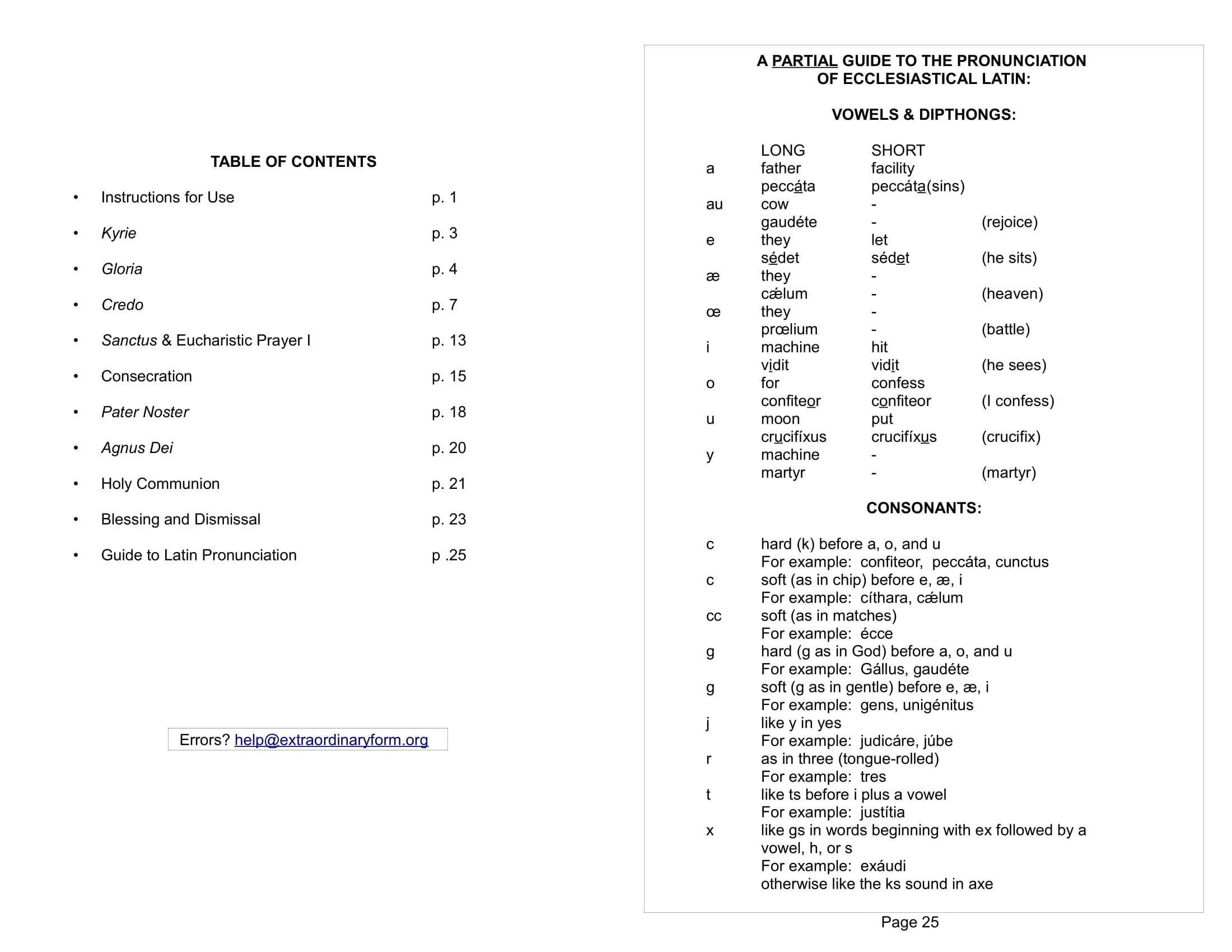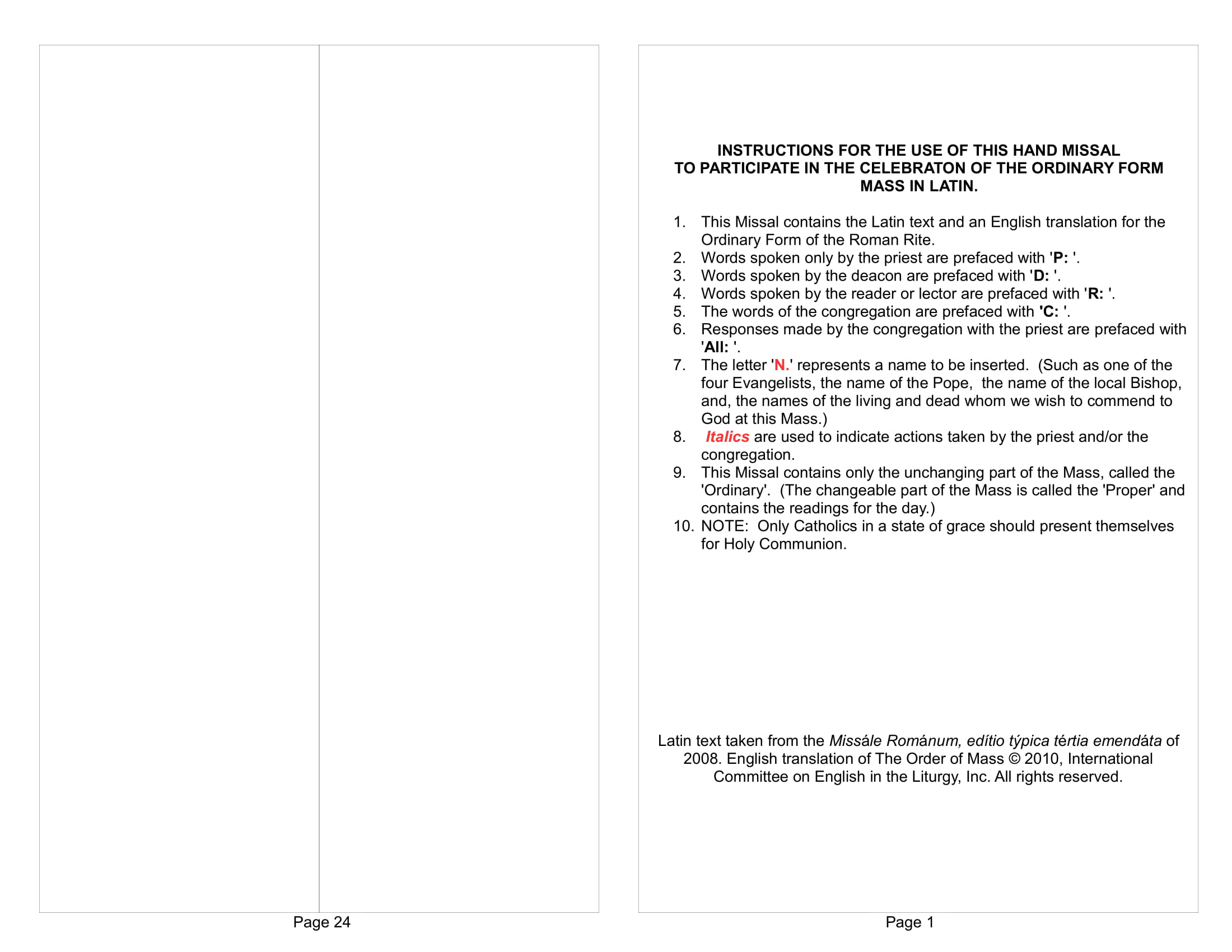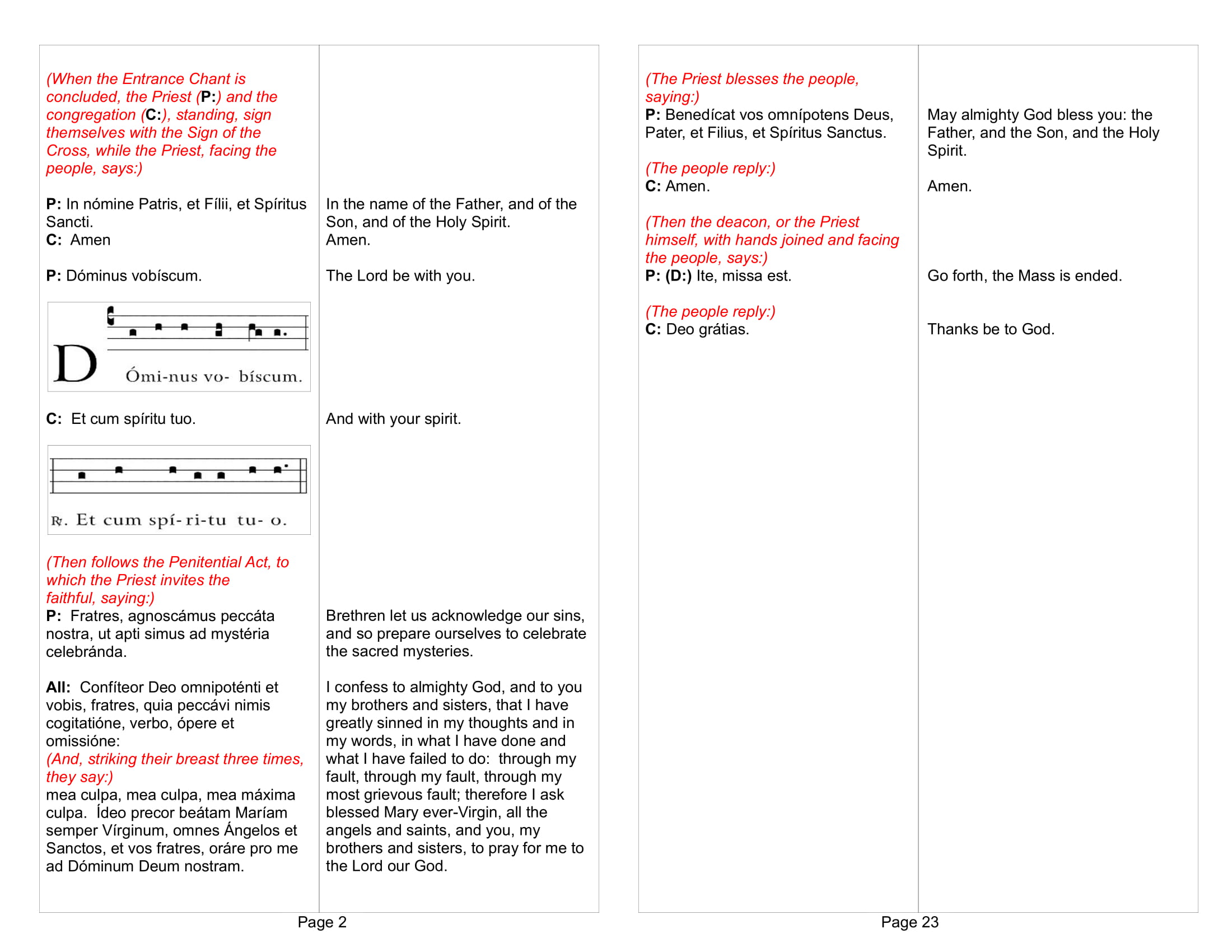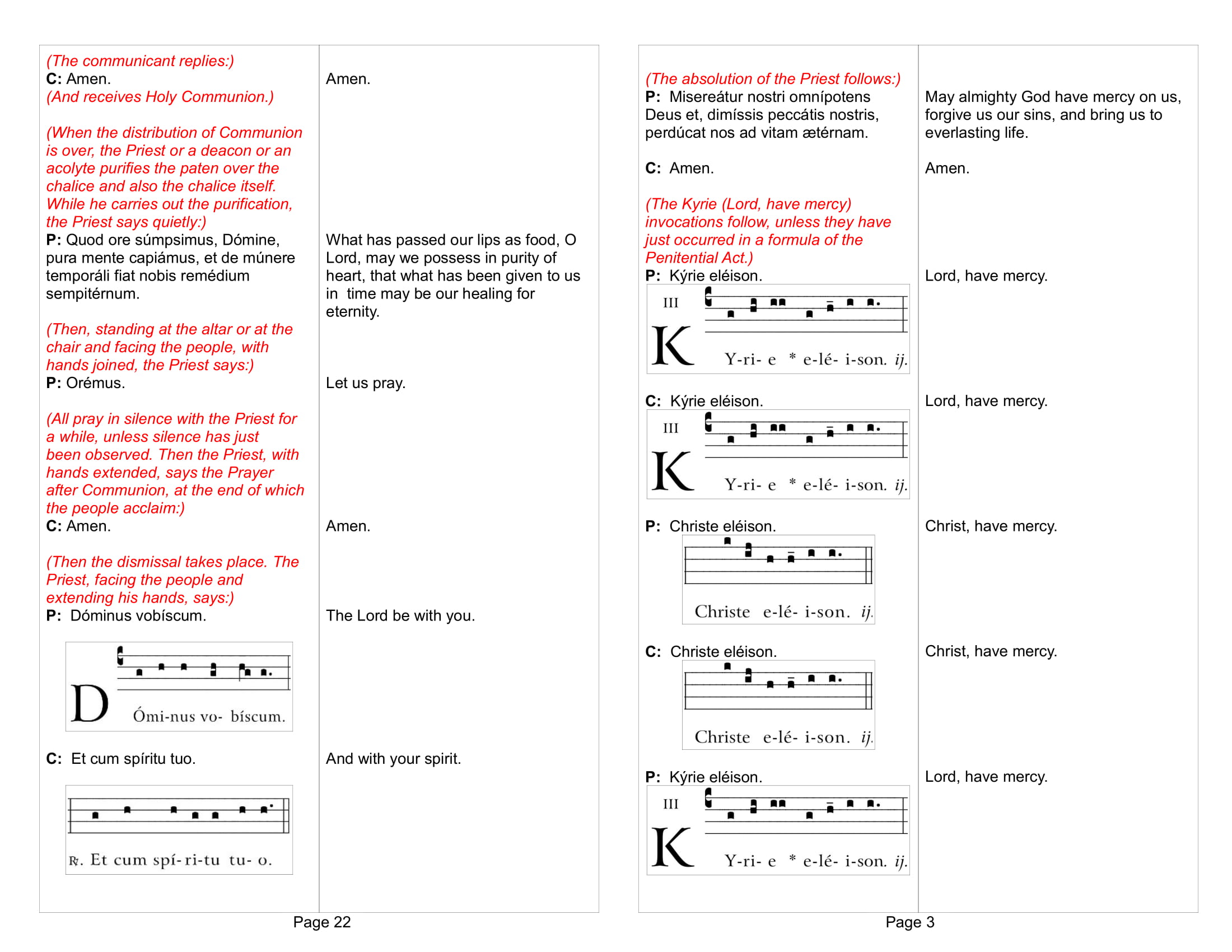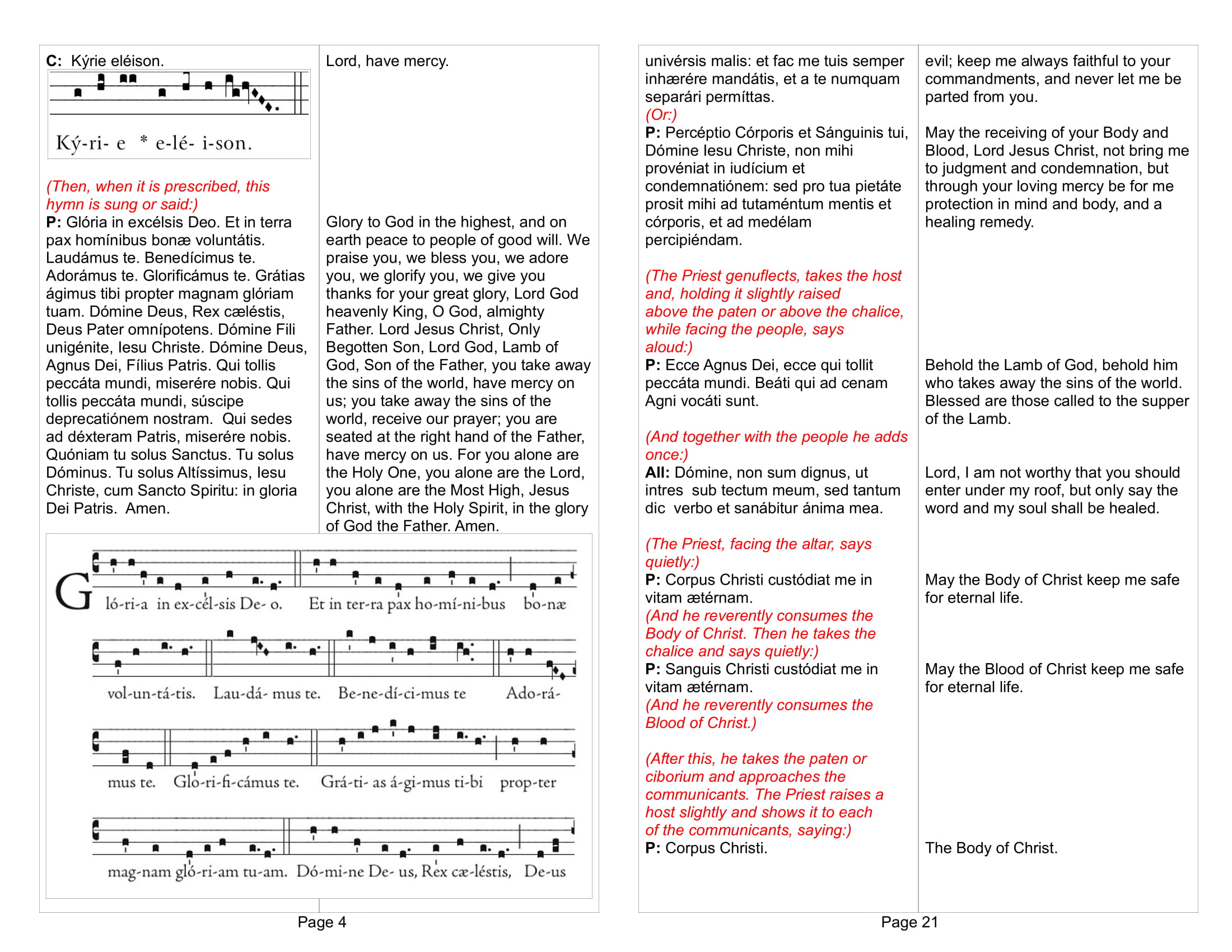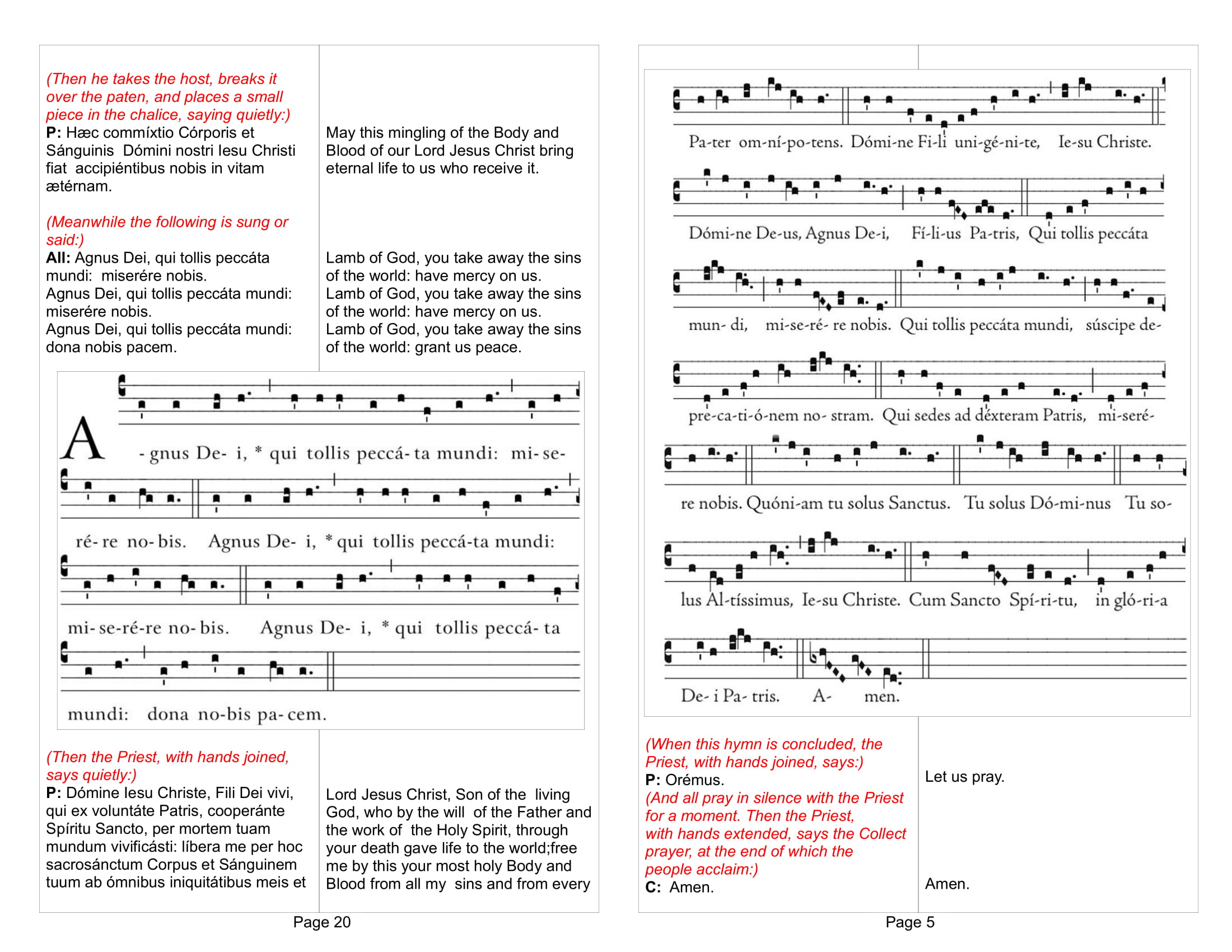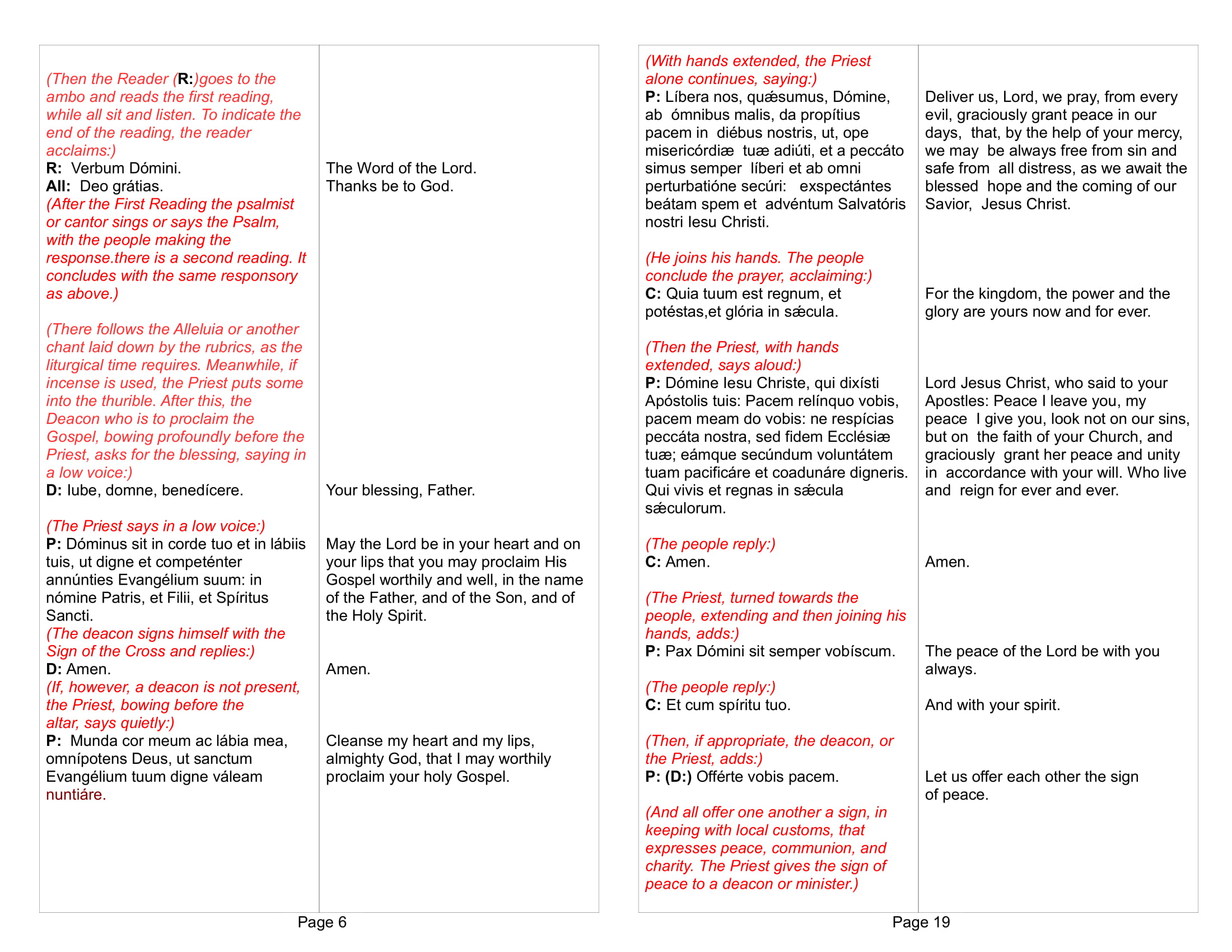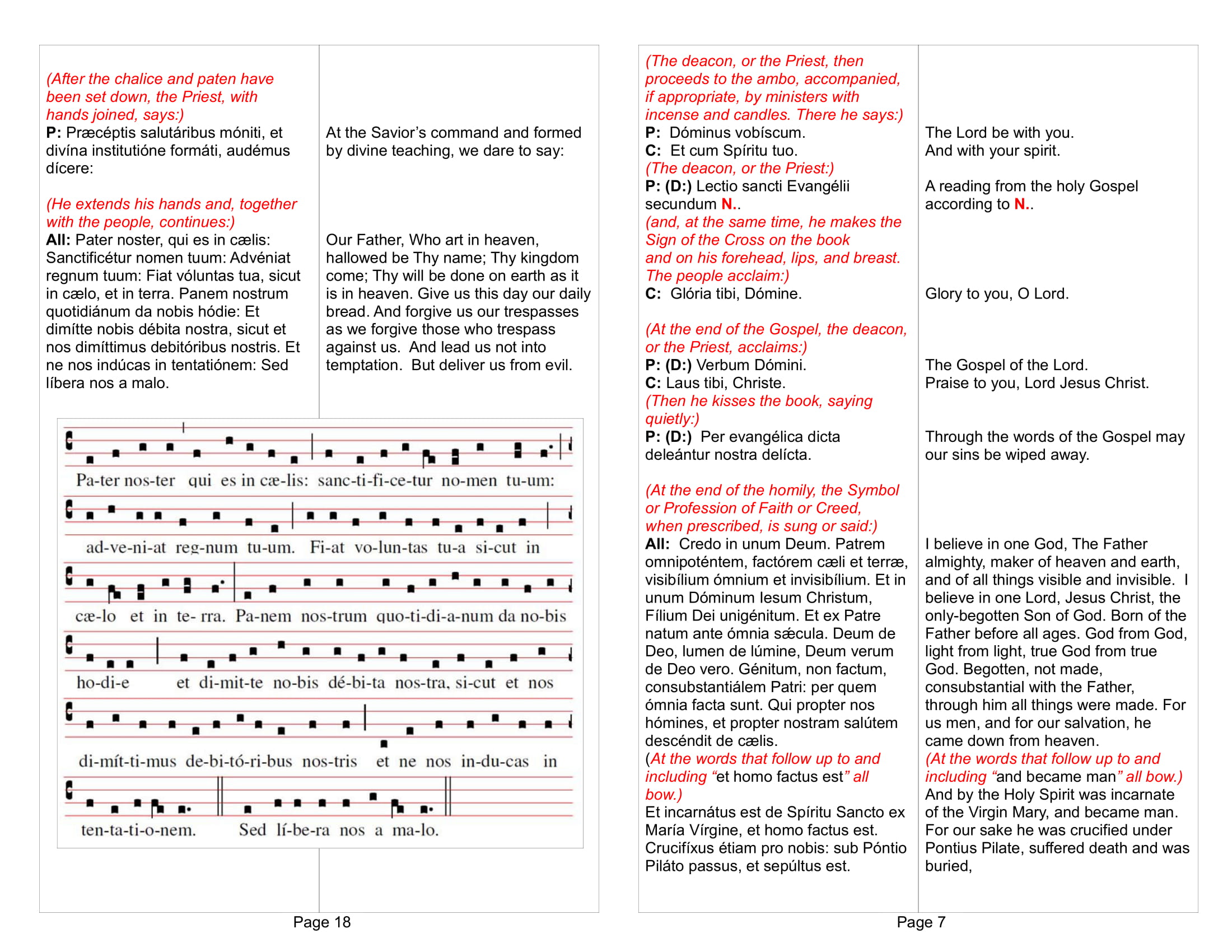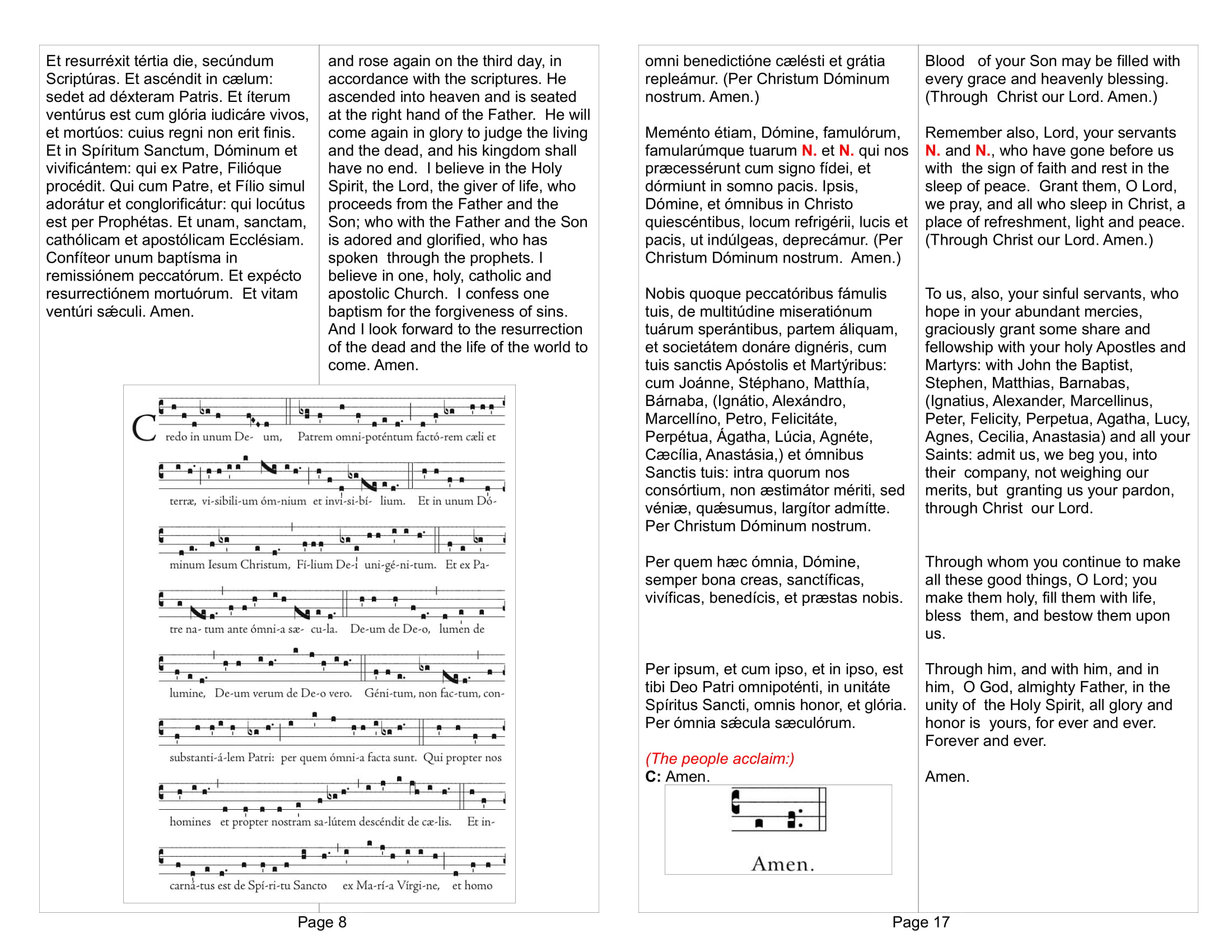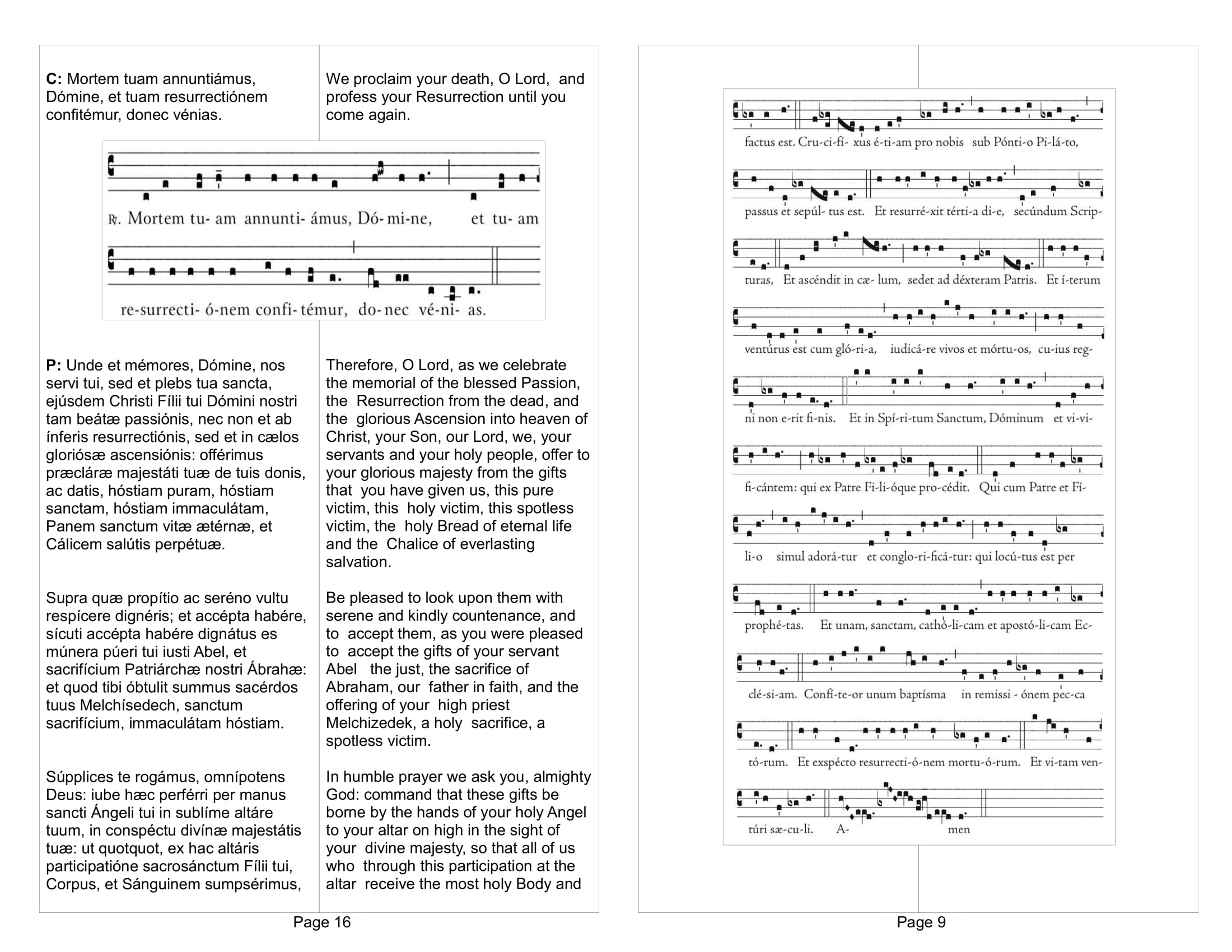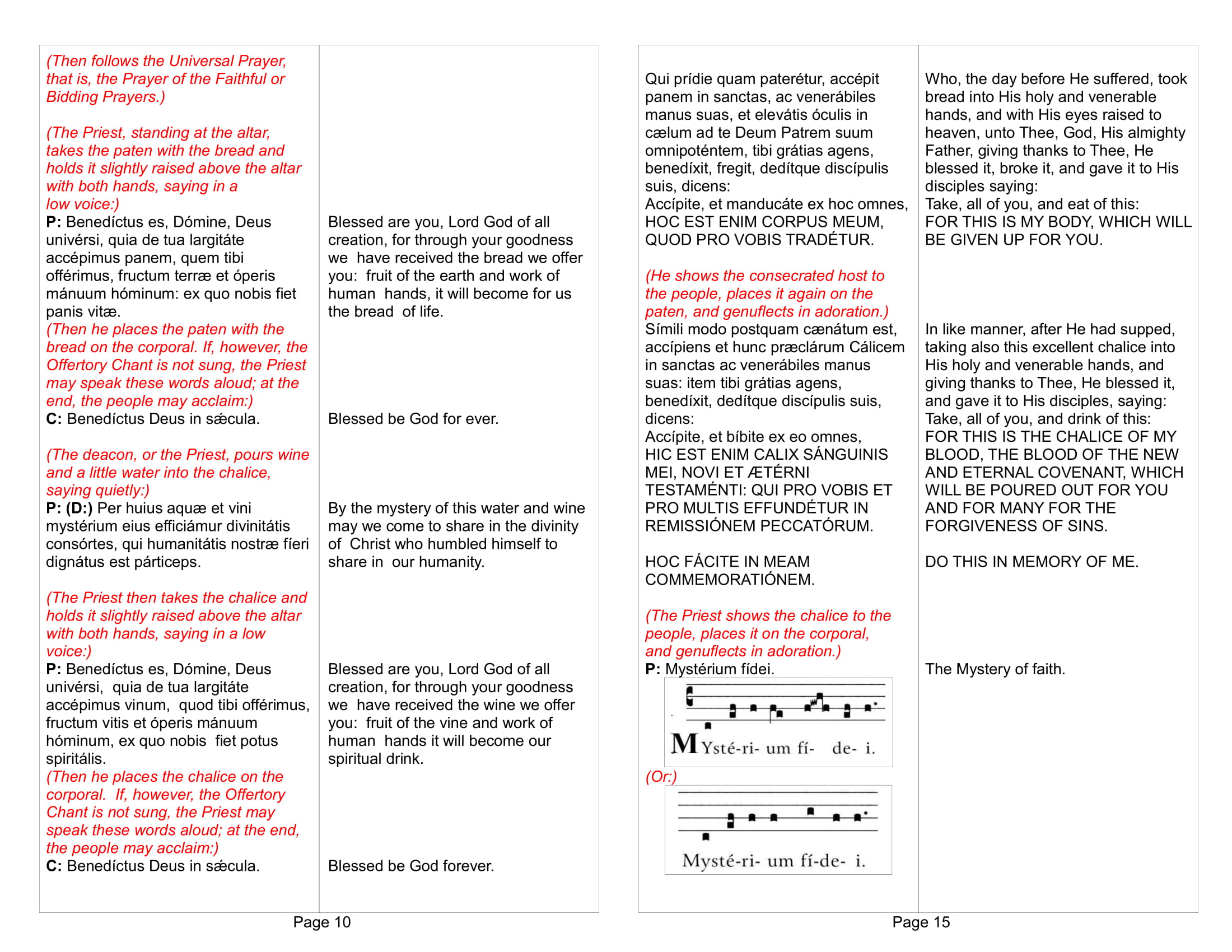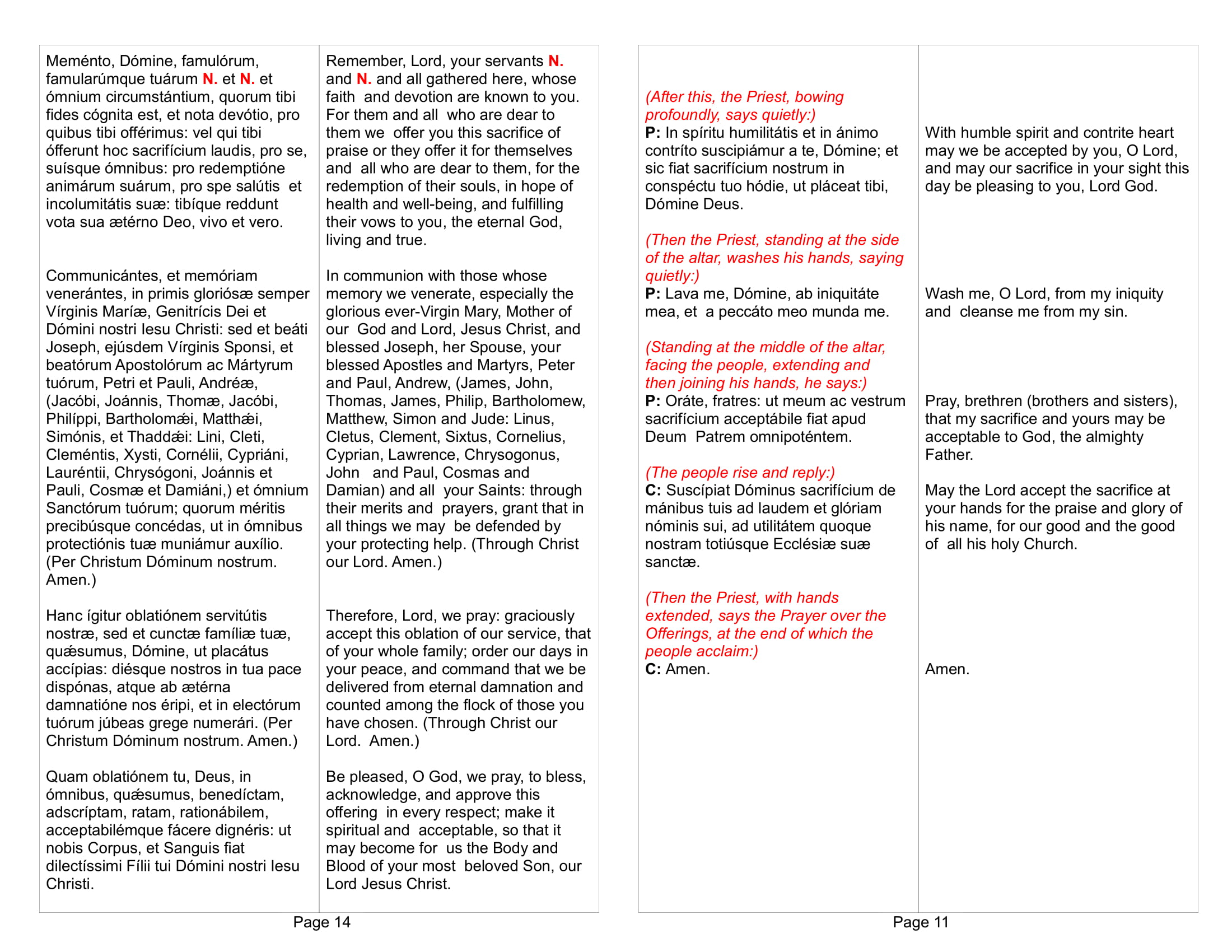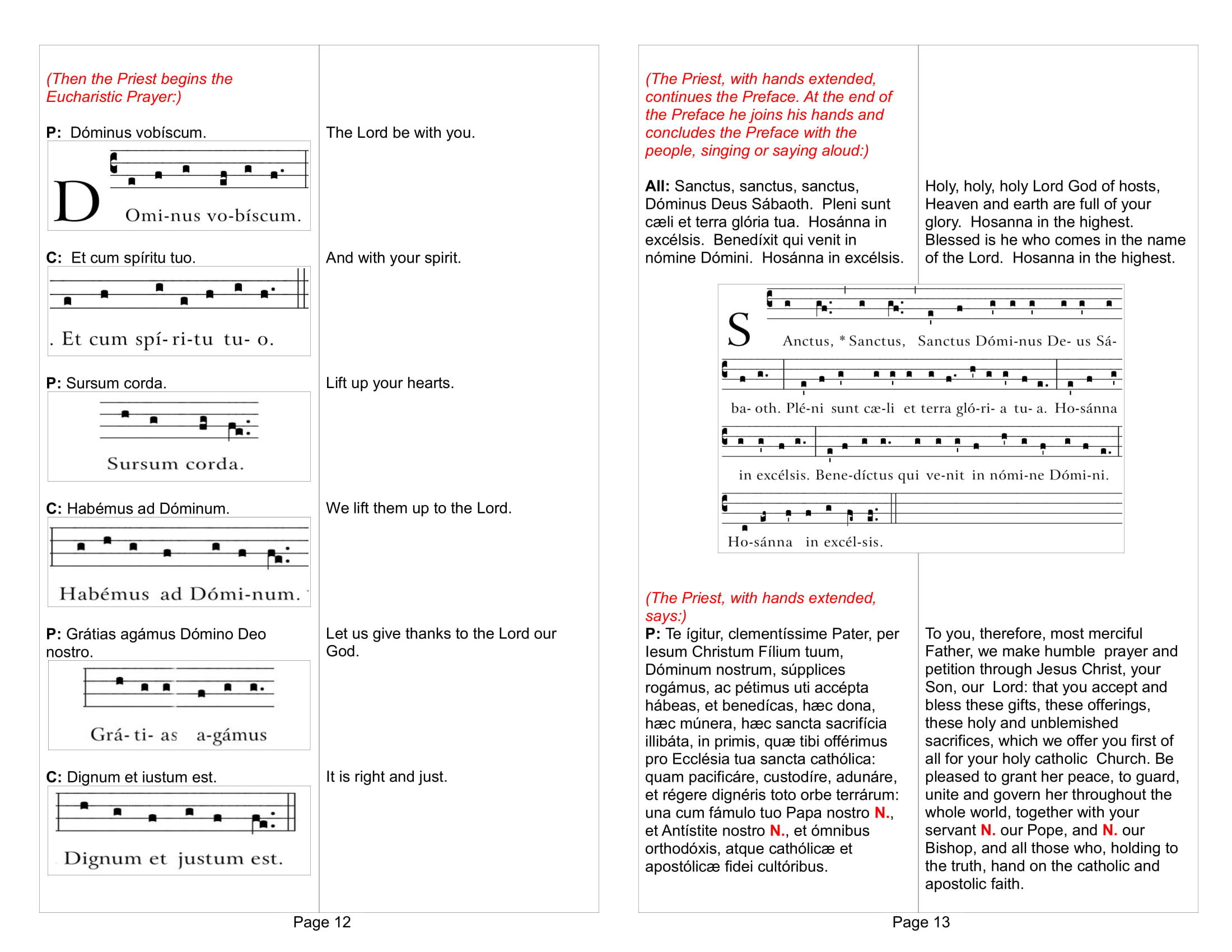Missæ quæ sequuntur ad libitum celebrantis adhiberi possunt.*
Quando dies 2 novembris incidit in dominicam, Missa fit de Commemoratione omnium fidelium defunctorum.
1
Ant. ad introitum Cf. 1 Th 4, 14; 1 Cor 15, 22
Sicut Iesus mórtuus est et resurréxit,
ita et Deus eos qui dormiérunt per Iesum addúcet cum eo.
Et sicut in Adam omnes moriúntur,
ita et in Christo omnes vivificabúntur.
Collecta
Preces nostras, quǽsumus, Dómine, benígnus exáudi,
ut, dum attóllitur nostra fides
in Fílio tuo a mórtuis suscitáto,
in famulórum tuórum præstolánda resurrectióne
spes quoque nostra firmétur.
Per Dóminum.
Super oblata
Nostris, Dómine, propitiáre munéribus,
ut fámuli tui defúncti assumántur in glóriam cum Fílio tuo,
cuius magno pietátis iúngimur sacraménto.
Qui vivit et regnat in sǽcula sæculórum.
Ant. ad communionem Cf. Io 11, 25-26
Ego sum resurréctio et vita, dicit Dóminus.
Qui credit in me, étiam si mórtuus fúerit, vivet;
et omnis, qui vivit et credit in me,
non moriétur in ætérnum.
Post communionem
Præsta, quǽsumus, Dómine,
ut fámuli tui defúncti
in mansiónem lucis tránseant et pacis,
pro quibus paschále celebrávimus sacraméntum.
Per Christum.
Adhiberi potest formula benedictionis sollemnis.
2
Ant. ad introitum Cf. 4 Esdr 2, 34-35
Réquiem ætérnam dona eis, Dómine,
et lux perpétua lúceat eis.
Collecta
Deus, glória fidélium et vita iustórum,
cuius Fílii morte et resurrectióne redémpti sumus,
propitiáre fámulis tuis defúnctis,
ut, qui resurrectiónis nostræ mystérium agnovérunt,
ætérnæ beatitúdinis gáudia percípere mereántur.
Per Dóminum.
Super oblata
Omnípotens et miséricors Deus,
his sacrifíciis áblue, quǽsumus, fámulos tuos defúnctos
a peccátis eórum in sánguine Christi,
ut, quos mundásti aqua baptísmatis,
indesinénter purífices indulgéntia pietátis.
Per Christum.
Ant. ad communionem Cf. 4 Esdr 2, 35.34
Lux ætérna lúceat eis, Dómine,
cum Sanctis tuis in ætérnum, quia pius es.
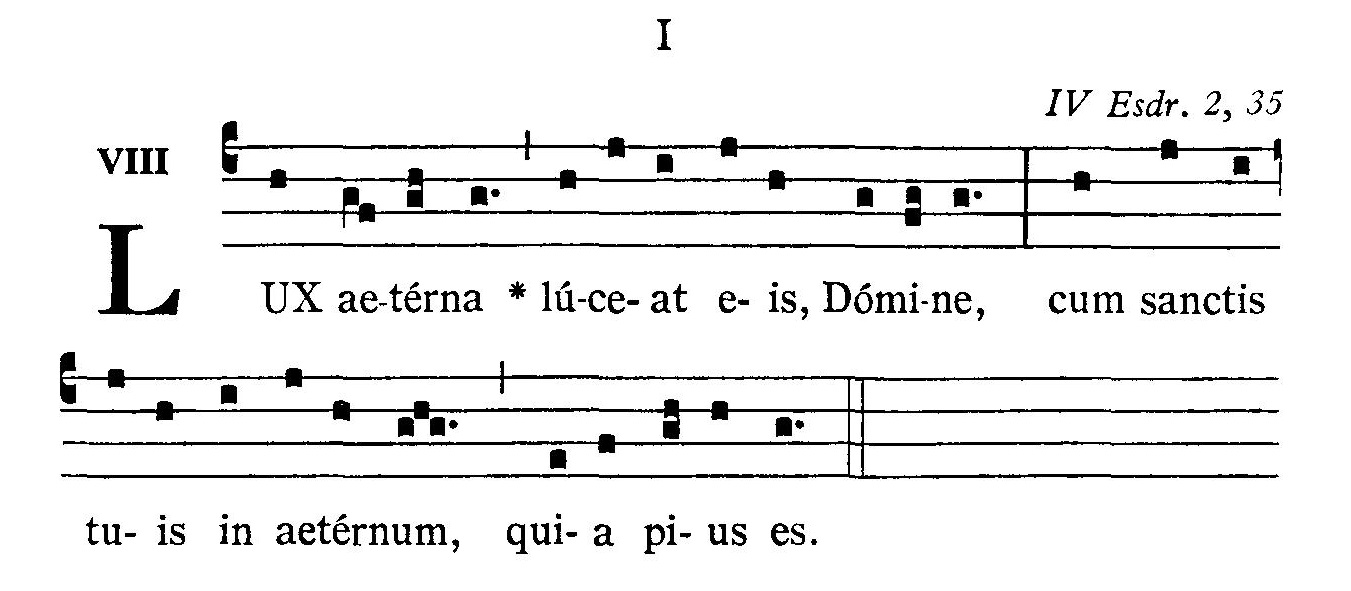
Post communionem
Sumpto sacraménto Unigéniti tui,
qui pro nobis immolátus resurréxit in glória,
te, Dómine, supplíciter exorámus pro fámulis tuis defúnctis,
ut, paschálibus mystériis mundáti,
futúræ resurrectiónis múnere gloriéntur.
Per Christum.
Adhiberi potest formula benedictionis sollemnis.
3
Ant. ad introitum Cf. Rom 8, 11
Deus, qui suscitávit Iesum a mórtuis,
vivificábit et mortália córpora nostra,
propter inhabitántem Spíritum eius in nobis.
Collecta
Deus, qui Unigénitum tuum, devícta morte,
ad cæléstia transíre fecísti,
concéde fámulis tuis defúnctis,
ut, huius vitæ mortalitáte devícta,
te conditórem et redemptórem
possint perpétuo contemplári.
Per Dóminum.
Super oblata
Pro ómnibus fámulis tuis in Christo dormiéntibus
hóstiam, Dómine, súscipe benígnus oblátam,
ut, per hoc sacrifícium singuláre vínculis mortis exúti,
vitam mereántur ætérnam.
Per Christum.
Ant. ad communionem Cf. Phil 3, 20-21
Salvatórem exspectámus Dóminum Iesum Christum,
qui reformábit corpus humilitátis nostræ
configurátum córpori claritátis suæ.
Post communionem
Multíplica, Dómine, his sacrifíciis suscéptis,
super fámulos tuos defúnctos misericórdiam tuam,
et, quibus donásti baptísmi grátiam,
da eis æternórum plenitúdinem gaudiórum.
Per Christum.
Adhiberi potest formula benedictionis sollemnis.
© Copyright – Libreria Editrice Vaticana
Messalino in PDF con letture in lingua italiana (da stampare su fogli A3 fronte/retro)
Missalette in PDF with readings in English (to be printed on A3 sheets, front/back)
* Hac die quilibet sacerdos tres Missas celebrare potest, servata tamen quæ statuta sunt a Benedicto XV, per Const. Apost. Incruentum Altaris Sacrificium, die 10 augusti 1915: A.A.S. 7 (1915) pp. 401-404.

